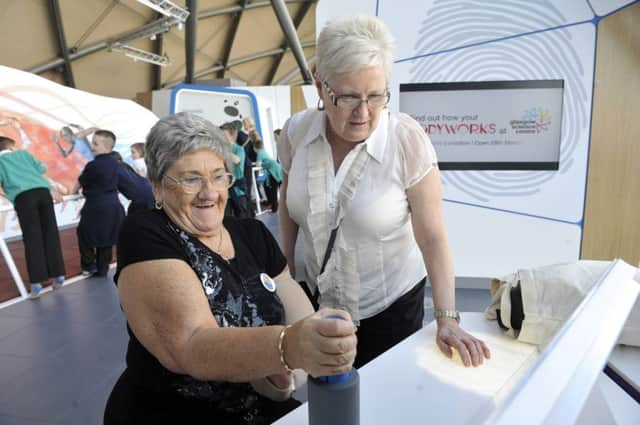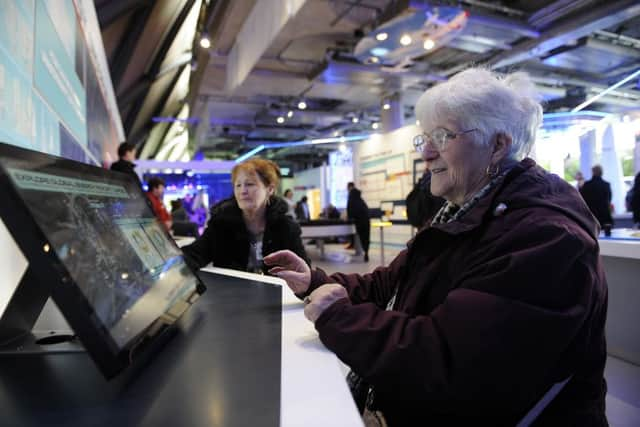Glasgow centre aims to prove science is open to all


Glasgow Science Centre, which opened in 2001 at a cost of £75 million, is a shining example of the Clyde waterfront’s 21st century transformation, and a symbol of the wider city’s rebirth following decades of deindustrialisation.
But the state-of-the-art museum is also playing its part in tackling deep-rooted social issues in parts of the west of Scotland caused by a lack of education and employment opportunities.
Advertisement
Hide AdAdvertisement
Hide AdIn a conscious effort to ensure the centre is not viewed as solely a destination for tourists, a variety of community groups - ranging from stroke groups to pensioners social clubs - are regularly invited to attend workshops and classes.


The activities are designed to be fun - but do serve a practical purpose.
“Visiting the science centre can be the first thing that sparks an interest in adults to get back in education and eventually find a job,” said Wesley Chung, a senior project worker at Flourish House.
The Glasgow-based charity - which operates the last mental health day centre of its kind in the city - sent its first clients to workshops at the centre two years ago.
“We have broad mix of people at Flourish House, but many are a long way removed from traditional education,” added Chung. “They might not have been in a learning environment since high school - and perhaps they didn’t finish high school.


“The folks that go to the Science Centre are the ones that perhaps don’t want to sign up for our college courses.
“The centre has a wonderful appeal. It brings out people’s creativity. There’s no sense of going to a college campus and feeling ‘I don’t belong here’.
“Some of them, particularly those required to take medication, can struggle with mornings. But they have surprised me by arriving early so they can get on the bus to go to the science centre.
Advertisement
Hide AdAdvertisement
Hide Ad“Four of them who attended the centre have gone on to college, so far. It provides a great introduction for adults to get back learning.”
With its interactive exhibits and stunning views of the Clyde, it’s difficult to imagine why anyone could be put off from visiting the science centre.
Yet Sally Pritchard, the museum’s community learning coordinator, found surprising hesitancy on the part of some locals.
“I met a stroke support group in Govan, which is on our doorstep, but they had never had been in here,” she said. “Yet we’re this big beacon in the local area.
“So we invited them in for what we called a discovery day - they have a cup of tea, a chat, and we ask them what they would like to do in the centre. It’s a needs-led approach.
“When I met other groups, people will say to me: ‘science isn’t for me’. I try to explain science is for everyone. When you dye your hear, for example, you’re mixing chemicals. It’s about making it relevant to them.”
Sally and her team work to overcome any barriers certain groups may have in visiting the centre.
“We have a group of Iranian refugees visiting this week,” she added. “Some of them are very well educated - but English is an issue, and they struggle to find work as a result. So this is something they can do at a practical level.”
Advertisement
Hide AdAdvertisement
Hide AdOne of the workshops taking place last week saw groups involved in a mock crime scene investigation.
Taking inspiration from the popular TV show CSI - but with none of the accompanying gore - centre staff explain how science can help catch criminals.
“We’re very aware that some people can find it scary to visit the science centre,” added Pritchard. “It’s about changing perceptions and ensuring it’s for everybody.”
